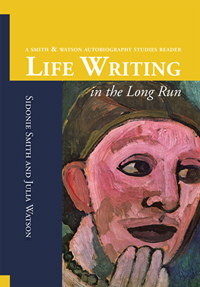
Life Writing in the Long Run: A Smith & Watson Autobiography Studies Reader
Skip other details (including permanent urls, DOI, citation information): Ann Arbor, MI: Michigan Publishing, University of Michigan Library, 2017.
: This work is licensed under a Creative Commons Attribution-NonCommercial-NoDerivatives 3.0 License. Please contact mpub-help@umich.edu to use this work in a way not covered by the license.
For more information, read Michigan Publishing's access and usage policy.
9. The Autobiographical Manifesto: Identities, Temporalities, Politics (Smith 1991)
Autobiographical writing has been central to emancipatory politics, deployed by women writers who issue self-consciously political calls for new kind of subjects. I call such texts autobiographical manifestos. This essay reads Hélène Cixous’s “The Laugh of the Medusa” (1976), Gloria Anzaldúa’s Borderlands/La Frontera: The New Mestiza (1987), and Donna Haraway’s “A Manifesto for Cyborgs” (1986/1991) as autobiographical manifestos, purposefully charged, linguistically bold, fiercely contentious. Each manifesto differently mobilizes constituent features of the genre (to bring to light, make manifest; to contest sovereignty; to proclaim publicly; to speak for a collective; to speak to the future) to contest the old inscriptions, the old histories, the old politics, the ancien regime, by working to dislodge the hold of the universal subject through an expressly political collocation of a new “I.”
This essay was published by a journal that is now owned by Taylor & Francis, Ltd., and is only available in the print and e-book versions of this collection. As Taylor & Francis refused to give permission for open access to this essay online, readers must access the Taylor & Francis website and pay its fee for access. We regret the inconvenience that this causes.


